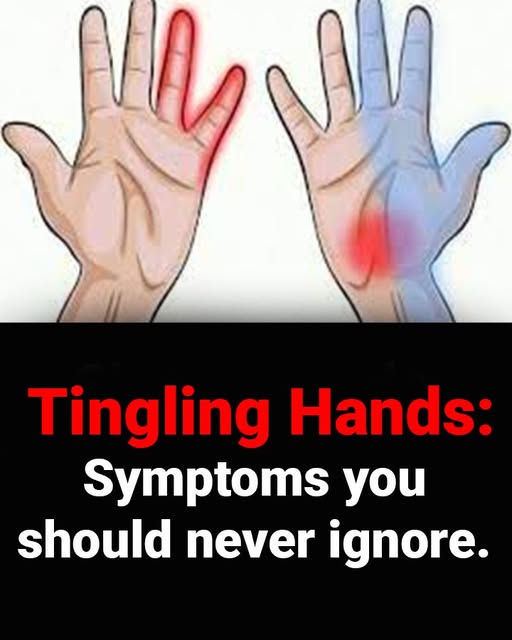2. Vitamin deficiency
Vitamins play a crucial role in keeping your body and nervous system healthy, and a deficiency can cause tingling in your hands. Your nerves need certain vitamins and minerals (in healthy doses) to function properly.
Low levels of vitamins B1, B6, B12, and folic acid can lead to neuropathy, which can cause tingling and sweating in your hands, fingers, and feet.
3. Pinched nerve
As too much pressure is applied to a nerve, it can cause a burning, tingling or pain sensation in the part of the body it supplies.
You may also experience numbness in your hands or feet. A pinched nerve in your wrist is called Carpal Tunnel Syndrome.
Those with a pinched nerve or carpal tunnel will also notice weakness in their limbs. You can treat pinched nerves by giving your hands and feet plenty of rest, using ergonomic products and gently massaging the area.
4. Kidney failure
The main function of your kidneys is to remove toxins from your body and blood. If your kidneys fail to do this, metabolic waste builds up in your bloodstream, causing nerve damage.
This leads to weakness, numbness, and tingling in your arms and legs. Other signs of kidney failure include:
– Tiredness, weakness, and fatigue
– Changes in urination and bladder control
– Swelling in your limbs
– Pregnancy
Pregnancy can cause tingling in your hands and fingers.
Many pregnant women experience tingling, numbness, and pain in their hands during pregnancy, especially in the third trimester and after delivery.
As your body swells, more pressure is added to your limbs and muscles, restricting and altering blood flow to your hands and feet.
Consult your doctor for tips on how to safely relieve tingling sensations and to find the most appropriate stretching exercises or treatments to help with discomfort during and after pregnancy.
5. Medication Side Effects
Certain medications cause tingling in the hands as a side effect. This sensation, although uncomfortable, goes away after you finish the required dose of the medication or after your body recovers and adjusts to it.
If side effects persist for a long time or interfere too much with your life, seek medical help. You may need to change the dose or switch brands of medication to help relieve the side effects.

